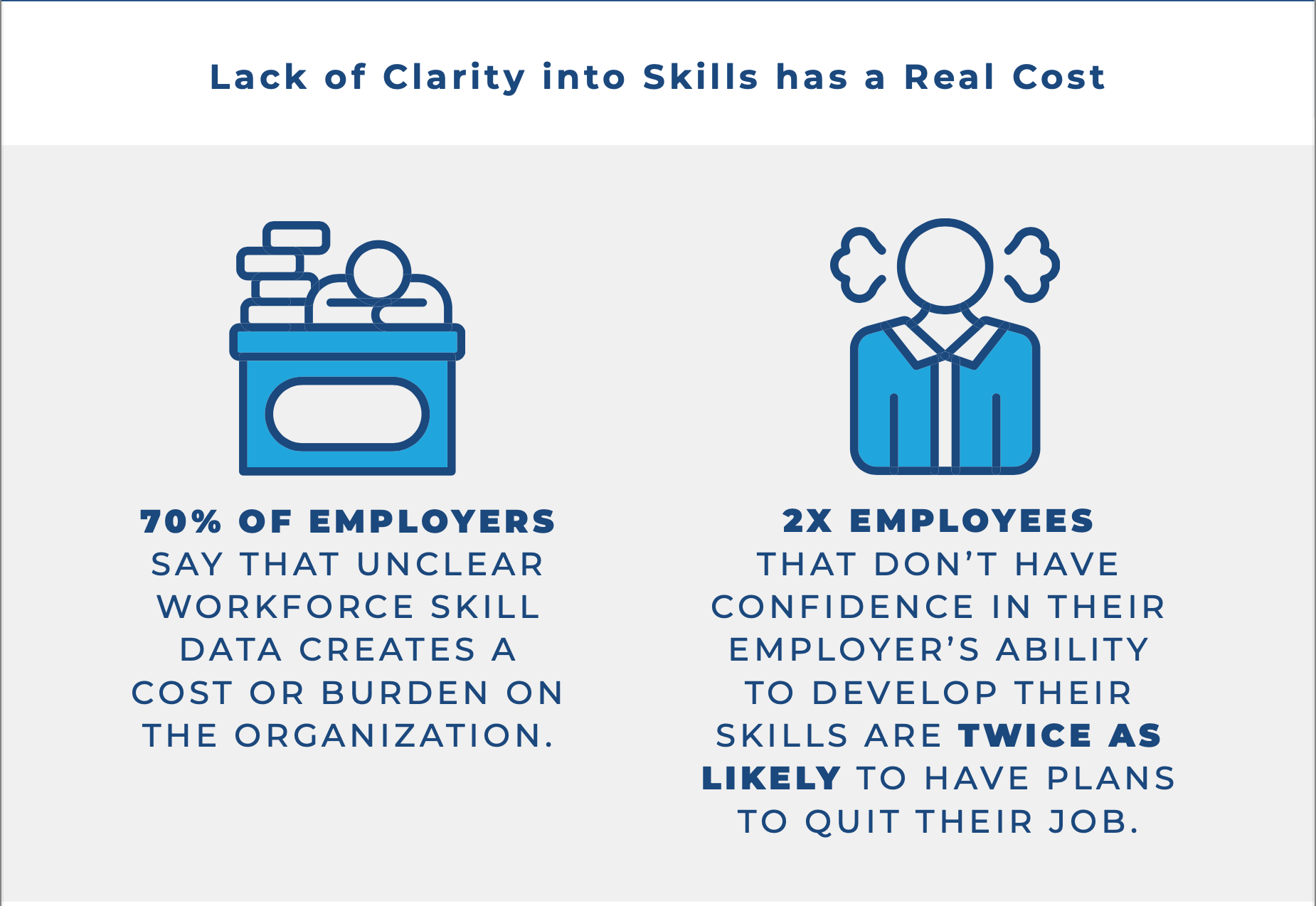In today’s rapidly evolving business environment, understanding the skills of your workforce is more important than ever. Whether it’s for hiring, development, or strategic decision-making, a skills-based approach to talent management has emerged as a powerful way to unlock the potential of employees while minimizing risk. As organizations shift from traditional qualifications to a focus on proven skills, the benefits are profound, impacting everything from employee retention to organizational agility.The Risk of the Unknown
To fully grasp the significance of understanding employee skills, consider the concept of risk management. In the world of program management, for example, a key focus is reducing uncertainty by relying on validated, accurate information. This same principle can be applied to understanding employee skills. Think about it: How can we confidently know that someone can fly a plane, perform surgery, or program software effectively if we don’t have a measurable way to verify their skills? The absence of skill data can lead to poor business decisions, missed opportunities, and a workforce that isn’t aligned with organizational needs.
Skill Clarity and Its Impact on Performance
The urgency to focus on skills in the workplace has grown rapidly over recent years. According to the 2024 Lighthouse Research & Advisory Skills, Learning, and Talent Development Trends Study, **over 70% of employers** report that a lack of skills clarity creates a cost or burden on their organization. Just as outdated, incomplete, or inaccurate customer data negatively impacts sales outcomes, outdated or inaccurate skill data can have similar effects on business performance.
The implications of a skills-based approach extend beyond organizational efficiency. For employees, having confidence in their employer’s commitment to skill development is critical for retention. In fact, when employees trust that their skills can be developed, they are **40% less likely to plan to quit**. This correlation demonstrates the value employees place on career growth and development as a decisive factor in staying with an organization. Additionally, **91% of employees** who are confident in their employer’s ability to develop their skills report having a clear understanding of job performance expectations. This clarity not only boosts individual productivity but also fosters a more focused and effective workforce.
Bias in Skills Evaluation and the Need for Objectivity
Traditionally, the most common method for identifying skills has been manager observations, but this approach can be biased. Neuroscience research reveals that nearly 200 biases affect decision-making, extending to how managers evaluate their team members’ skills. While **three in four employers** attempt to measure and track workforce skills, the reliance on subjective evaluations can limit accuracy. The challenge lies in developing more objective ways to capture skill data that better reflect an employee’s actual capabilities.
Real-World Impacts of a Skills-Based Approach
Focusing on real, proven skills rather than traditional qualifications offers several advantages. It provides employees with a clearer understanding of job requirements and gives them a more defined path for growth. When employees know that their strengths are being identified and leveraged, they feel more engaged, increasing their sense of belonging in the workplace. In fact, employees with a strong sense of belonging are **50% more likely** to believe that their employer understands their skills, abilities, and strengths. This strong connection between skills clarity and employee engagement drives better individual performance and organizational success.
Beyond individual outcomes, employers can use skills insights to shape broader strategies, such as workforce planning, succession planning, and internal mobility. For instance, a deeper understanding of employees’ skills allows for more precise identification of skill gaps, targeted upskilling, and effective role transitions. This not only supports employee development but also ensures that the organization can quickly adapt to evolving market demands and opportunities.
Conclusion: A Holistic Skills Strategy
Ultimately, a skills-based approach to talent acquisition and development benefits the entire organization. It reduces the risks associated with incomplete or inaccurate skills data, improves retention and engagement, and aligns workforce capabilities with strategic business goals. By treating skills as a strategic asset, talent and learning teams can more accurately understand, develop, and utilize the capabilities of their workforce, creating a more agile and resilient organization ready to meet future challenges.
As skills become the focal point of talent strategy, businesses that prioritize skill development will not only thrive in the current landscape but will also be better positioned for long-term success. Now is the time to embrace a skills-based approach and transform how we understand and elevate workforce capabilities.

George Rogers is the Chief Strategy Officer at Lighthouse Research & Advisory. He is an author, coach, and globally renowned keynote speaker acclaimed for delivering compelling insights on cultivating purpose-driven, profitable businesses. As a leader developing inclusive and motivating workplace environments, he consistently provides transformative perspectives and guidance to organizations worldwide. Over the past two decades, he has dedicated himself to inspiring leaders and transforming workplace cultures.
In his book Champion Your Purpose, we learn that finding purpose in life looks different for everyone, and very few will find the exact common purpose that aligns the exact same. He provides a step-by-step approach to help readers identify their purpose and align it with their personal and professional goals.
His research focuses on leadership and its impact on performance, engagement, culture, mental health, inclusion, and belonging. If you ask him what led him to the HR space, he will remind you that his passion and purpose are championing people.
With over 25 years of leadership and keynote speaking experience, he has inspired, empowered, and challenged every audience —virtually and in person —to discover their purpose in the workforce, learn how to Champion Your Purpose individually, and lead the life they love.

